I went recently to a local production of
Twelve Angry Jurors, a play about the impact of prejudice on a jury deliberating a murder case. It’s an old play and sadly perpetually current, but what really grabbed my attention was a comment a guest speaker made during the talk-back. She was responding to a question about how to bridge divides in ideology and experience, and her answer was just to read. Read what you believe, and then read the opposite. It’s simple advice, but it’s a radical response to the curated, mediated culture we live in, where our iPhones and social media newsfeeds, podcasts, and online subscriptions are tailored to our politics and safeguard our sensitivities. And since most of us choose friends who share our worldview and abstain from discussing hot-button issues in the workplace, it’s possible to go on indefinitely without thoughtfully engaging with conflicting perspectives. The result is a life that’s more comfortable and convenient, but it’s being lived against the backdrop of a democracy in free fall, in part because we refuse to hear each other out.
What that guest speaker helped me understand is that it’s a short jump from rejecting someone’s voice to rejecting her humanity; and that when you reject someone’s humanity it’s not even a jump to reject her reality. It’s a selfish deafness that leads to cruelty and the ideological tunnel vision that makes it hard to discern fact from fiction. It makes sense that, according to the
Washington Post, 50 percent of Americans believe in at least one conspiracy theory. How can we determine real threats, real priorities, and real points of common interest when the dominant political narrative is that the “truth” is mutable and self-serving? Well, we can start by reading. Reading what we believe, and then reading the opposite. Because reading about lives and issues from multiple perspectives forces a more critical engagement with the world as it truly is and demands our empathy, if not our agreement.
The conspiracy theories below are widely believed by Americans of all stripes, and they have a significant impact on American culture and governance. (Just one example: Scott Pruitt, the new head of the EPA, disputes climate science.) Where possible I’ve tried to pair sincere explorations of conspiracy theories with books that either debunk those theories or broaden the conversation to include additional perspectives. So pick your favorite and read on — the truth is out there.
The Grassy Knoll: Who Killed JFK and Why?
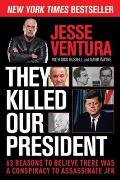 They Killed Our President: 63 Reasons to Believe There Was a Conspiracy to Assassinate JFK
They Killed Our President: 63 Reasons to Believe There Was a Conspiracy to Assassinate JFK
by Jesse Ventura
Jesse Ventura’s take on the JFK assassination is characteristically combative and colorful, making it a fun and very easy, broad introduction into the world of JFK conspiracies. It’s also well-cited, with many references for further reading and movie watching. Note: Ventura does refer the reader to fictional films like
The Manchurian Candidate, so approach his research suggestions (and methods) with a grain of salt.
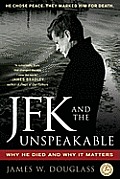 JFK and the Unspeakable
JFK and the Unspeakable
by James W. Douglass
Oliver Stone really loves this book! But if that doesn’t persuade you, Douglass’s angle on the assassination conspiracy is meticulously researched and sharply written. Douglass argues that JFK’s murder was the result of his gradual move away from Cold War warrior to pacifist determined to avoid the specter of nuclear conflict.
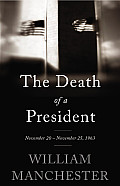 The Death of a President: November 20 – November 25, 1963
The Death of a President: November 20 – November 25, 1963
by William Manchester
This massive tome fits into the oldie but goodie category — no thorough evaluation of the Kennedy assassination would be complete without reading Manchester’s detailed record of the days immediately following JFK’s death. Commissioned by the Kennedy family, Manchester’s account tends to view the Kennedys in a rosy light, but it has a fascinating backstory: the Kennedys regretted being so frank with Manchester and harassed him for years, driving the author to the brink of a nervous breakdown. If you want a book that truly captures the cultural tenor of the early 1960s, and a magnificent portrait of one of America’s “royal” families in its heyday,
The Death of a President is essential reading.
September 11: What Did Bush Know?
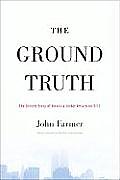 Ground Truth: The Untold Story of America Under Attack on 9/11
Ground Truth: The Untold Story of America Under Attack on 9/11
by John Farmer
Farmer served as senior counsel to the 9/11 Commission, and
Ground Truth is the culmination of years of digging through declassified materials pertaining to the White House and government agencies responsible for national security. His conclusion is that the American national security apparatus is labyrinthine and ineffectual, and his supporting arguments provide demonstrable evidence that the 9/11 narrative fed to Americans by the Bush administration is shaky at best.
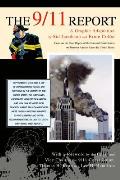 The 9/11 Report: A Graphic Adaptation
The 9/11 Report: A Graphic Adaptation
by Sid Jacobson
This is the actual 9/11 Commission Report, in an easier to follow and more entertaining graphic format. Given the inconsistencies and omissions of the report — lovingly laid out by John Farmer, above — it’s essential that those interested in uncovering a 9/11 conspiracy familiarize themselves with the official findings. The illustrations make this version particularly accessible to younger readers or to adults who simply don’t want to read several hundred pages of legalese.
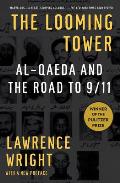 The Looming Tower: Al Qaeda and the Road to 9/11
The Looming Tower: Al Qaeda and the Road to 9/11
by Lawrence Wright
New Yorker staff writer Lawrence Wright won the Pulitzer Prize for this investigation into the birth of Al Qaeda and the American intelligence community’s growing awareness of the group as a threat to national security. Wright’s a marvelous writer who brings suspense, detail, and depth to the historical events that culminated in the terrorist attacks on 9/11. I found his nuanced profiles of Al Qaeda founders Osama bin Laden and Ayman al-Zawahiri, and refusal to lionize FBI counterterrorism chief John O’Neill, particularly interesting.
Area 51 (and Some Aliens): Or, What Our Government Does in the Desert
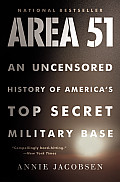 Area 51: An Uncensored History of Americas Top Secret Military Base
Area 51: An Uncensored History of Americas Top Secret Military Base
by Annie Jacobsen
Jacobsen was given unparalleled access to dozens of retired Area 51 employees, all of whom provide credible eye-witness accounts of the weapons and aircraft development that takes place on America’s covert military base in the Nevada desert. While Jacobsen brings tremendous journalistic chops to a subject usually consigned to more fringe authors and publications,
Area 51 has garnered some criticism for Jacobsen’s promotion of the Roswell alien conspiracy, to which she adds her own salacious twist.
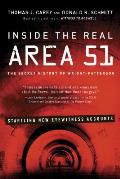 Inside the Real Area 51
Inside the Real Area 51
by Thomas J. Carey and Donald R. Schmitt
Less mainstream than Jacobsen, but still resolutely grounded in investigative reporting and military resources, Carey and Schmitt’s
Inside the Real Area 51 provides confirmation for believers; and for skeptics, thorough descriptions of the ideas and evidence ufologists use to support their claims.
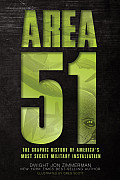 Area 51: The Graphic History of America's Most Secret Military Installation
Area 51: The Graphic History of America's Most Secret Military Installation
by Dwight Zimmerman and Greg Scott
This seems to be more of a love it or hate it book for Area 51 conspiracy fans. Zimmerman and Scott dispense with the alien mythology of Area 51 and focus on the various aircraft developed and tested on the base. The graphic novel format is good for younger readers, but also for aviation enthusiasts who want a simplified look at how drone technologies have evolved.
The Elite Group Running the World: Secret Reptile Billionaires From Space!
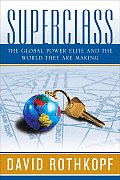 Superclass: The Global Power Elite and the World They Are Making
Superclass: The Global Power Elite and the World They Are Making
by David Rothkopf
Rothkopf’s well-reviewed investigation into the lives and machinations of the world’s global elite doesn’t uncover any reptiles (for that you’ll need to see David Icke, below), but it does illuminate how a small group of influential leaders in global finance and the defense industry move between private enterprise and political office, often without congressional or public oversight. Do their management acumen and international experience make them uniquely suited to politics, or are they positioning themselves for further enrichment? Much has been made of Rothkopf’s professional relationship with Henry Kissinger — i.e., can he truly care about systemic inequality — but
Superclass is a fairhanded exposé that refuses to demonize the elite, even as it questions their motives.
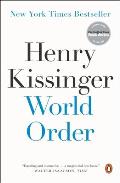 World Order
World Order
by Henry Kissinger
Henry Kissinger is a terrible person. But for a recent book that delves into what exactly “world order” means, how it has shifted over time, and how America must reorient its foreign policy to meet 21st-century demands,
World Order is a must-read, if for no other reason than that Kissinger has many acolytes in government.
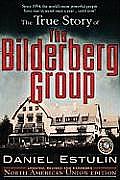 True Story of the Bilderberg Group
True Story of the Bilderberg Group
by Daniel Estulin
The Bilderberg Group is a real set of individuals who meet yearly to discuss “megatrends and major issues facing the world” (
Bilderbergmeetings.org). Though press releases list at least some of the participants, the discussions are kept private, fueling a vast network of theories about the true goals of the group, which according to the Internet is world domination. Spanish journalist Daniel Estulin is arguably the godfather of Bilderberg conspiracy theory, and in
True Story he pulls back the curtains on the Bilderberg Group to reveal a shadow government determining the future of humanity. Taken at face value, a lot of Estulin’s claims seem crazy, but when contextualized within Rothkopf’s evidence-based analysis of how the global elite move fluidly between private and public office, his nightmare idea of a shadow network controlling mass media and Western government gains some plausibility.
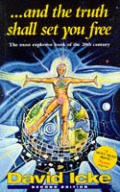 ...And the Truth Shall Set You Free
...And the Truth Shall Set You Free
by David Icke
Truthfully, if you want to take a deep dive into global conspiracy theory, any book by David Icke will satisfy you. A proponent of the ideas that an intergalactic reptilian race has seeded the human population (you’ll find them at the annual Bilderberg meetings) and that we live in the matrix, Icke’s work is shocking, imaginative and very popular. Icke’s popularity is actually why I’m including him in this list — when a self-proclaimed “god-head” who believes in the reptilian elite sells thousands of books, it’s worth taking notice. What are his readers responding to, and why?
Is Science True When It Gets in My Way?
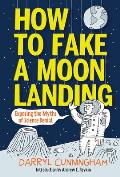 How to Fake a Moon Landing: Exposing the Myths of Science Denial
How to Fake a Moon Landing: Exposing the Myths of Science Denial
by Darryl Cunningham
I’m of two minds about
How to Fake a Moon Landing. On the one hand, Cunningham’s subject knowledge is limited and his biases are evident. For example, his chapter on chiropractic medicine highlights the kooky ideas of its 19th-century founder, but omits mention of the evidence-based practice that forms the foundation of chiropractic medicine today. Still, for a young or reluctant reader, this accessible book provides a good introduction to the idea of science denialism in its most popular forms. Cunningham examines eight contentious scientific issues like evolution and fracking from a variety of angles, using cartoons, graphs, and photographs to illustrate complex topics. Start, but don’t stop here.
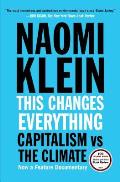 This Changes Everything: Capitalism vs the Climate
This Changes Everything: Capitalism vs the Climate
by Naomi Klein
This Changes Everything is a rousing and necessary look at the connections between free market capitalism with its “drill, baby, drill” mentality and the environmental and social ills facing Americans. Rather than spending time arguing that climate change is real, Klein focuses her attention on how we can change the primacy of carbon-based industries (and the neoliberal policies supporting them) in order to stabilize the planet and improve the lives of its inhabitants. What I like best about Klein’s approach is that her detailed dissections of initiatives like cap and trade expose the cynicism of government programs aimed at linking the fossil fuel industry with shared prosperity.
This Changes Everything can be overwhelming in its insistence on the interconnectedness of money, power, and environmental destruction, but it is very convincing and certainly of the moment.
The Holocaust Never Happened
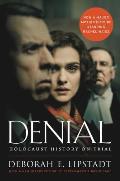 Denial: Holocaust History on Trial
Denial: Holocaust History on Trial
by Deborah E. Lipstadt
Denial is Lipstadt’s account of being tried for libel by historian and Holocaust denier David Irving, whom she called a “dangerous” man. In order to defend herself, Lipstadt assembled an impressive team of legal experts and historians with the express purpose of proving both that the Holocaust occurred and that Irving’s work explicitly attempts to eclipse evidence of that history and foment anti-Semitism. It’s a riveting read and a sobering one — Holocaust denialism is surprisingly prevalent, with elements of it showing up in other popular conspiracies about the global elite, 9/11, and even the assassination of JFK.
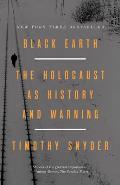 Black Earth: The Holocaust as History and Warning
Black Earth: The Holocaust as History and Warning
by Timothy Snyder
In many ways
Black Earth is a more focused and detailed version of Snyder’s recent
On Tyranny, which argues that the political and cultural conditions of the 20th century that culminated in Nazi and Soviet atrocities are recurring now in Europe and the U.S. At the heart of both books is the insistence that the Holocaust is not an exceptional or mysterious moment in modern history, but a repeatable and, more chillingly, relatable offense. Snyder’s scholarship is meticulous and innovative, an accomplishment in the popular field of Holocaust studies; of particular interest is his argument that mass genocide occurred in areas where institutions and preexisting laws were destroyed by the Nazi invasion. In other words, without the protective cushion of a shared political and social structure — however meager — Jews were much more likely to be slaughtered by their countrymen. Given partisan divisions in this country and the precarious position of many minorities, it’s easy to envision a future in which those with power subvert the social contract for their own gain. Snyder suggests it’s already here.